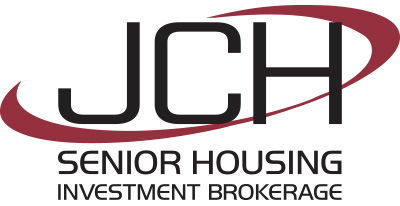JCH Consulting Group analyzes the State of the California and National Senior Housing Markets, and provides an in-depth look into its future.
Las Vegas, Nevada, July 28, 2017. Senior Housing has been a stable asset class so far in 2017, but several factors could affect market performance in 2018 and 2019, according to Senior Housing expert Nick Stahler, Senior Vice President of JCH Consulting Group, a senior housing investment brokerage with 20 years in the industry. Focusing on licensed healthcare facilities, Skilled Nursing Facilities (SNF), and Assisted Living Facilities (ALF), Mr. Stahler begins his analysis stating that in 2017 ALF deals have been relatively calm, with only a handful of large transactions and only one large operator divesting on a national basis. Conversely, SNFs have seen some changes, as the trends of REITS divesting of SNF assets have continued, as large portfolios have entered the market from large industry operators and REITs.
After pushing upwards in 2016, cap rates have remained stable in 2017 for both SNFs and ALFs. The class “A” ALF cap rate is in the high 6 percent range, and then goes up, depending on the facility’s quality, performance, and location. SNF cap rates have remained consistent between 12 and 13 percent. Two of the industry’s largest SNF operators are currently marketing assets, with one of them announcing they have a large portfolio available in California, which may skew these numbers once they close.
New construction continues to be popular for ALFs and memory care facilities, so much so that depending upon which expert you speak to, either 6 or 7 markets have become oversaturated with new construction. Fortunately, says Stahler, most industry veterans feel there is enough demand in the pipeline that it all will be absorbed at some point. However, the question is how fast, and will we see any major issues arising from that? If demand does not keep up with construction, there could be some turbulence in the market, and equity investors possibly looking to sell if they are dissatisfied with returns.
Senior Housing operations have been stable in 2017. SNF operators face larger issues due to Medicare reimbursement increasing only 1 percent over the next year, plus President Trump’s budget for 2018 calls for $610 million in Medicaid cuts over the next decade. Also, expenses continue to rise for both ALFs and SNFs. And the minimum wage has increased as have insurance costs–two of the industry’s highest expense line items. These could have a slight impact. Fortunately, ALFs with a private pay model have been able to pass on these increases to residents. It is more difficult for a SNF to recapture these increases in expenses due to the reimbursement-based model with government-set rates.
Interest rates on the debt piece are expected to continue to rise, although how much and how fast has yet to be seen. Many operators and investors that JCH Consulting Group deals with have made contingency plans for an increase in interest rates on debt. If rates go up significantly, pricing will be affected.
The big topics looking forward will be the absorption rate on new construction, specifically on ALFs and memory care facilities, as well as how some of these large portfolios play out, and what cap rates and price per bed they close at in the SNF world. That will dictate what pricing looks like for the remainder of 2017 as well as 2018. Nevertheless, Mr. Stahler remains confident in the future of the Senior Housing market. “All other fundamentals are still very strong, and the number of seniors and baby boomers who need seniors housing services will continue to grow at a substantial rate”, says Mr. Stahler.
